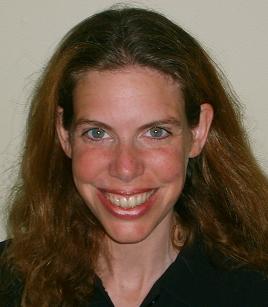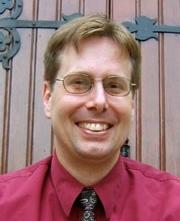| Distinctive, Not Disposable: Religious Studies in American Public Higher Education in the Twenty-first Century - Flexible Structures, Goals, and Technologies in the Twenty-first Century |
![PDF-NOTE: Internet Explorer Users, right click the PDF Icon and choose [save target as] if you are experiencing problems with clicking.](http://rsnonline.org/templates/rsntemplate-smallmasthead/images/pdf_button.png) |
 |
|
Page 2 of 2
The problems and promises addressed here are not unique to state schools, nor to religious studies departments. These essays address many universal problems in the humanities today. Yet examining these issues through the lens of a particular institutional context can be illuminating. Contributors to this edition of Spotlight represent a range of viewpoints, from those who teach graduate and undergraduate students to those who teach almost exclusively introductory or general education courses. They come from smaller and larger departments and campuses, but they are all aware of the problems and promises of teaching religion in state institutions. Many of our authors focus on the place of religious studies in a broader context. Joel Gereboff takes us on the journey of the Arizona State University Department of Religion as it transforms to become part of a new school comprising religion, history, and philosophy. Many departments at state institutions might find themselves in position to consider new administrative structures in order to continue teaching and publishing in their fields. Gereboff’s article should help faculty imagine changes that might come in the wake of possible budget cuts and administrative reorganization. In particular he advocates a transdisciplinary orientation that focuses on topical, thematic, and multidisciplinary concentrations within religious studies. Such an orientation demonstrates relevance and connectivity in an era of changing institutional structures that demand those emphases. Three of our authors emphasize the role of religious studies as part of general liberal education at a time when that enterprise is being questioned or sidelined. Brian Wilson explores how vital religious studies is to liberal education, particularly at state institutions where liberal education is perceived with some skepticism. Wilson argues that religious studies belongs squarely in the liberal arts tradition of “education for citizenship” funded by taxpayer dollars. He demonstrates the ways in which a course in religious studies can intentionally connect to the university’s mission of citizenship by exposing students to various conceptions of the good, training students in theoretical approaches so as to evaluate conceptions of the good, and further exercising critical analysis by learning to critique the critiques. In so doing, Wilson provides a model of how to utilize courses to intentionally articulate the citizenship goals of higher education. Stephen Finley also highlights the contribution of religious studies to the goal of citizenship, as he makes a clear call for a type of teaching through disruption. His goal is to “educate students for humanity” (a goal shared by all of our contributors), but Finley emphasizes examining the relationship of religion to hierarchical social structures. Such an examination not only allows for critical inquiry and enhanced student voice but opens a pathway for students to imagine and work for a more egalitarian society. Finley’s essay illustrates the losses incurred were state universities to teach exclusively to the marketplace and not to the human beings in its classroom. Laura Ammon similarly advocates an education for humanity as she demonstrates how she engages in a process of construction of the self in the face of cultural and parental pressures to attain a particular vision of the good life. Ammon uses autobiographical study to help students examine their own stories and lives in ways that allow for making meaning beyond a professional existence. The remaining two contributors examine particular pedagogical strategies and commitments that address the very real needs both of students and administrators. Like our other authors, Celia Brewer Sinclair shows how she makes her general education courses student-centered islands for addressing questions of purpose and meaning. Sinclair welcomes the students whose professional goals seem to have little to do with her classes, and she makes them see how their ideas and responses matter. But she pays special attention to classroom climate, explaining ways to make it both hospitable and charged. Engaging twenty-first century technologies, she describes “flipping” classes so that technology can be used outside class to provide content, leaving class time for more directed engagement. Lora Hobbs also addresses twenty-first century technology and reinforces many of Sinclair’s points about in-class and out-of-class time as she employs an agricultural metaphor to argue for the strengths of hybrid or blended courses on university campuses. She makes a compelling case for the integrity of hybrid courses alongside their traditional counterparts, and her data speaks volumes about the wisdom of combining full-time, traditional, face-to-face teaching and learning with a new paradigm. Perhaps her experience will help convince the many wary teachers to consider alternatives to “purebred” courses. All six essays make it clear that those of us located in state universities will need to find ways to work and teach within new paradigms and to make ourselves flexible and viable in a changing climate. Above all, we must maintain the pedagogical creativity and rigor we and our students need in order to flourish.
|
 Spotlight on Teaching
Spotlight on Teaching
 Ellen Posman is an associate professor of religion at Baldwin-Wallace College in Berea, Ohio. She holds degrees in religious studies from Stanford University, Harvard University, and the University of California, Santa Barbara. Her expertise lies in the area of comparative religion, with specializations in Buddhism and Judaism. Posman can be reached at
Ellen Posman is an associate professor of religion at Baldwin-Wallace College in Berea, Ohio. She holds degrees in religious studies from Stanford University, Harvard University, and the University of California, Santa Barbara. Her expertise lies in the area of comparative religion, with specializations in Buddhism and Judaism. Posman can be reached at  Reid B. Locklin holds a joint appointment in Christianity and culture at Saint Michael’s College and at the Centre for the Study of Religion, both at the University of Toronto. A graduate of Boston University and Boston College, he is the author of Spiritual but Not Religious? (Liturgical Press, 2005) and other works in comparative theology, Christian ecclesiology, and spirituality. Locklin currently serves as president of the Society for Hindu–Christian Studies and as cochair of the AAR’s Comparative Theology Group. He can be reached at
Reid B. Locklin holds a joint appointment in Christianity and culture at Saint Michael’s College and at the Centre for the Study of Religion, both at the University of Toronto. A graduate of Boston University and Boston College, he is the author of Spiritual but Not Religious? (Liturgical Press, 2005) and other works in comparative theology, Christian ecclesiology, and spirituality. Locklin currently serves as president of the Society for Hindu–Christian Studies and as cochair of the AAR’s Comparative Theology Group. He can be reached at 